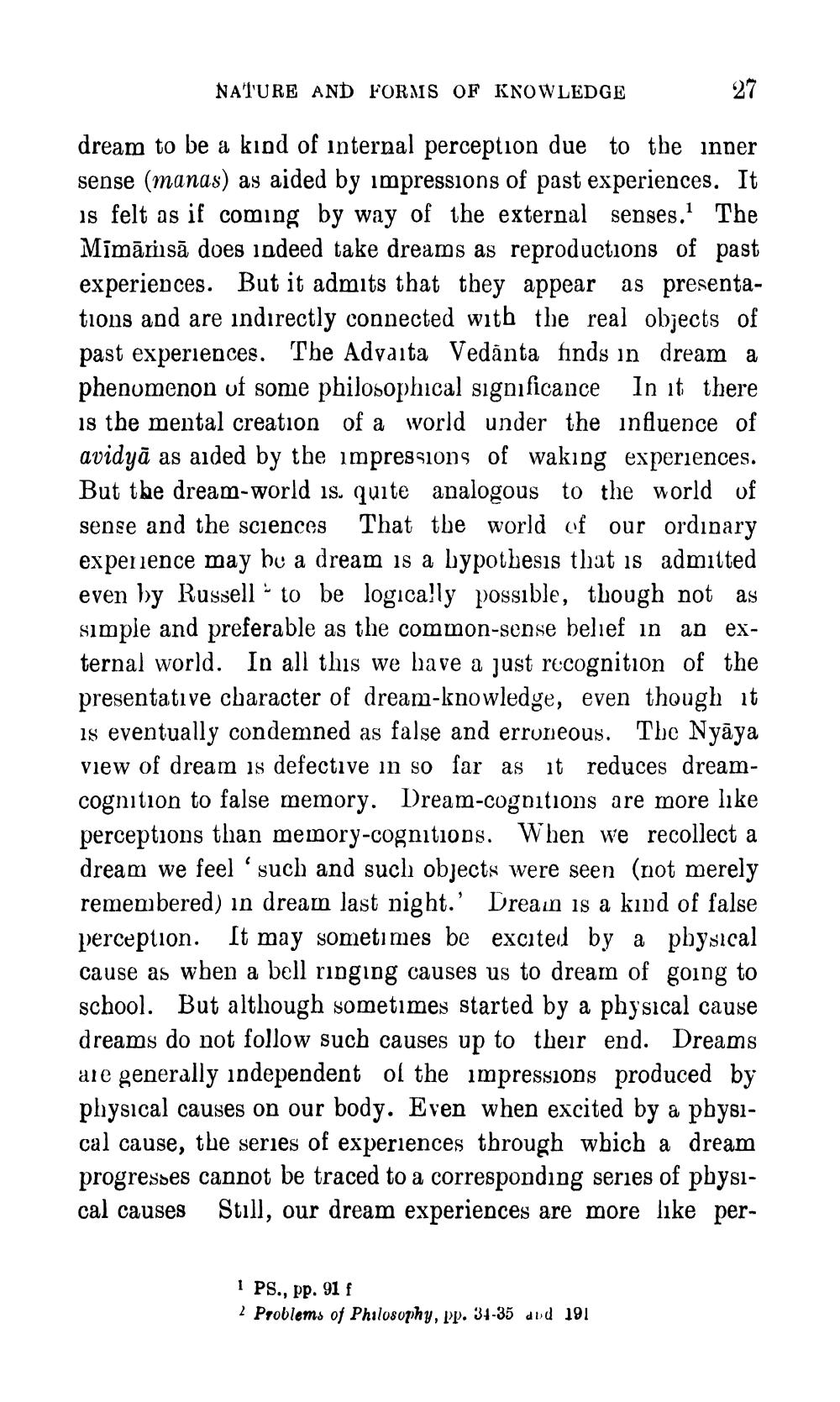________________ NATURE AND FORMS OF KNOWLEDGE 27 dream to be a kind of internal perception due to the inner sense (manas) as aided by impressions of past experiences. It is felt as if coming by way of the external senses. The Mimariisa does indeed take dreams as reproductions of past experiences. But it admits that they appear as presentations and are indirectly connected with the real objects of past experiences. The Advaita Vedanta finds in dream a phenomenon uf some philosophical significance In it there is the mental creation of a world under the influence of avidya as aided by the impressions of waking experiences. But the dream-world is. quite analogous to the world of sense and the sciences That the world of our ordinary expenence may hu a dream is a hypothesis that is admitted even by Russell - to be logically possible, though not as simple and preferable as the common-sense belief in an external world. In all this we have a just recognition of the presentative character of dream-knowledge, even though it is eventually condemned as false and erroneous. The Nyaya view of dream is defective in so far as it reduces dreamcognition to false memory. Dream-cognitions are more like perceptions than memory-cognitions. When we recollect a dream we feel 'such and such objects were seen (not merely remembered) in dream last night.' Dreain is a kind of false perception. It may sometimes be excited by a physical cause as when a bell ringing causes us to dream of going to school. But although sometimes started by a physical cause dreams do not follow such causes up to their end. Dreams are generally independent of the impressions produced by physical causes on our body. Even when excited by a physical cause, the series of experiences tbrough which a dream progresses cannot be traced to a corresponding series of physical causes Still, our dream experiences are more like per i PS., pp. 91 f 2 Problems of Philosophy, pp. 31-35 dvd 191




